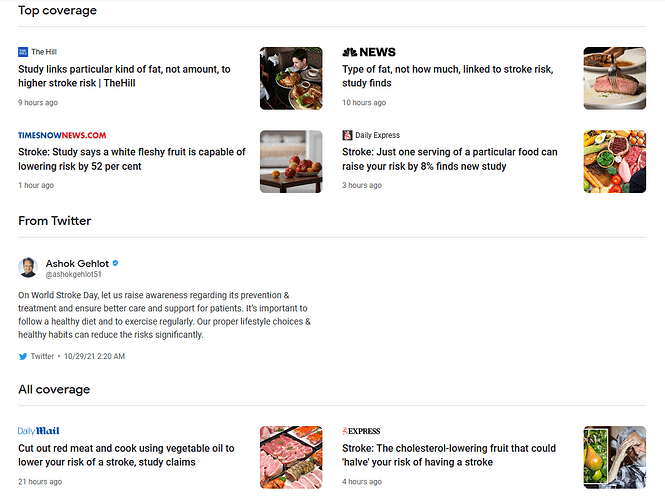We had it all wrong guys, and this article proves it!
Fat in the diet has long been linked to stroke risk, but new research presented Monday suggests that it’s the type of fat, not the amount, that may be the more important factor.
The study found that eating more animal fat was linked to a higher risk of stroke, while getting more fat from vegetable sources was linked to a lower risk.
I read this and decided I have to quite poisoning myself with animal fat. I only hope it’s not too late.
For those who don’t know me that well, I’m being facetious.
Another quote from the article:
“If everyone could make small modifications, such as reducing red and processed meat intake, the implication for public health will be huge,” said the study leader, Fenglei Wang, a postdoctoral research fellow at the Harvard T.H. Chan School of Public Health. Wang’s findings, which were presented Monday at the American Heart Association Scientific Sessions 2021, haven’t yet been published in a peer-reviewed journal.
Funny how this unpublished study is already making headlines. It’s like they’re subtly trying to convince us to stop eating red meat. 






